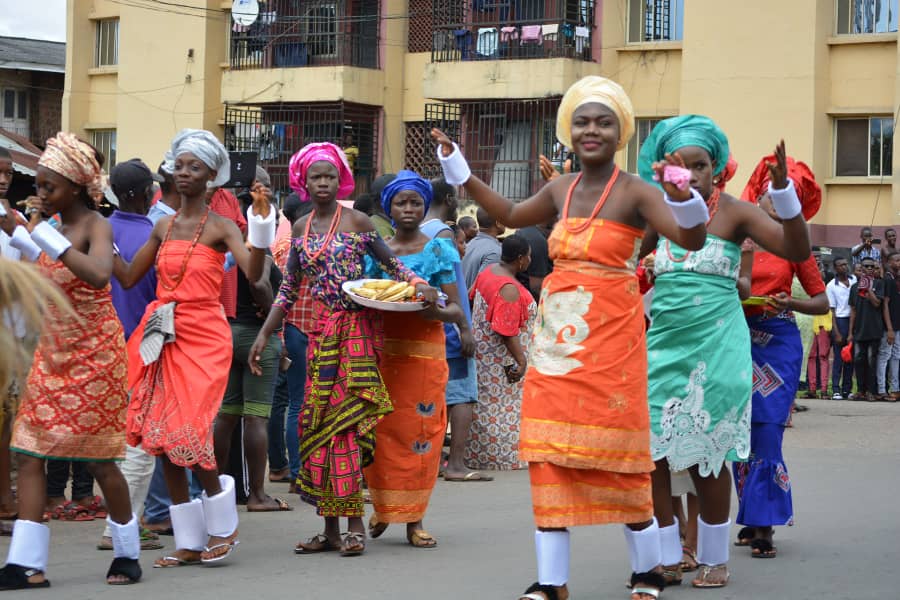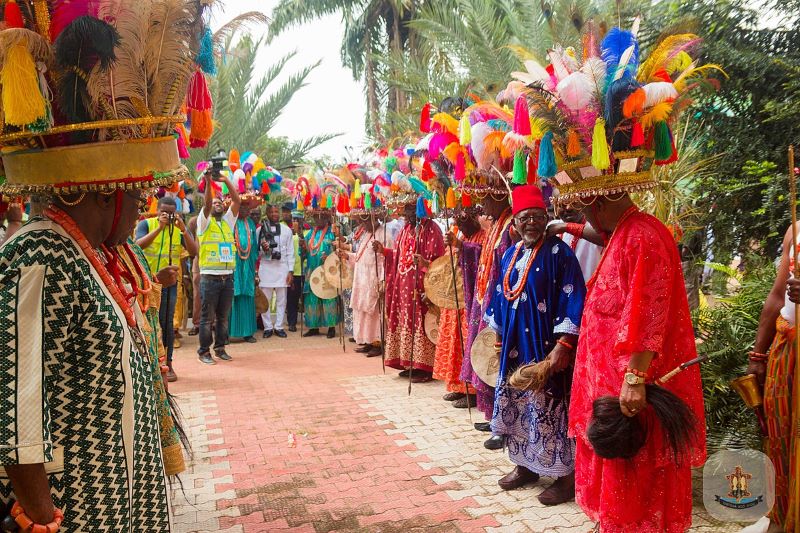Ofala Onitsha. Eaghadiuno, CC BY-SA 4.0, via Wikimedia Commons
The month of October comes with celebrations for many communities in the Southeastern part of Nigeria. Home to the Igbo ethnic nation, October marks a period where communities celebrate the iri ji festival (new yam festival). It is also the month for the renowned Ofala festival where communities all around the Southeast celebrate with their respective Obi’s/Igwes (Kings).
Igwes in the southeast are seen as custodians of the culture and history of the people. They presided over the affairs of the people through their various Ichie’s who acted as administrators in their various communities, dealing with the concerns of their subjects while also applying the decisions of the Obi.
The position of Ichie was no small feat to achieve. The title commonly comes after the conferment of the Ndi Eze/Ndi Ozo title which is given to persons in recognition of their contributions and impact on the respective communities. When the title holder has attained a certain age and status and is considered worthy among his community to represent their interests, he is recognized by the Igwe and incorporated into his close cabinet as a members of Ndi-Ichie.
The first day of festivities is known as the Iru Ofala. Accompanied by Ndi-Ichie (members of his cabinet), this day is set aside strictly for His Majesty. Adorned in his traditional regalia, his majesty makes several appearances within his palace arena in full view of his subjects and visitors alike. His appearance is accompanied by traditional music and dance to the adulation of the crowd.

Onyinyeonuoha, CC BY-SA 4.0, via Wikimedia Commons
The second day of festivities is the Azu Ofala which allows the subjects to pay tribute to their King. Across the community, different groups make an appearance adorned in colorful attires of the respective groups they belong to. Each group is expected to dance past the throne and pay homage to the monarch.
Companies and organizations within the various communities also seize that opportunity to pay tribute to the monarch with some even going a step further to sponsor all activities regarding the Ofala celebrations.
The celebrations are then accompanied by a banquet and other sponsored forms of entertainment by companies around the palace grounds with many engaged in merry-making and other forms of festivities. Within the communities, traditional dancers make an appearance as a form of entertainment for the people.

Onyinyeonuoha, CC BY-SA 4.0, via Wikimedia Commons
Also making an appearance are the traditional masquerades or Mmanwu (as they are fondly referred to). Touted to be ancestral spirits made manifest in the physical, these masquerades exhibit various forms of personality which reflects the Igbo lore and cosmology. A closed secret group, the masquerades can only be approached by men who have been initiated into the circle. Women and children are not encouraged to approach the masquerades but can observe their performances from a safe and comfortable distance.
Over the years the Ofala festival has evolved to embrace a modernization of its programs and activities. With more activities added to the pre and post-events, the festival is one of the biggest events in the Igbo calendar year. The event has also fostered a trail of developmental programs such as free health checkups, awards of scholarships, and the construction of infrastructural projects that have spurred community growth.
As the event kicks off this year, many in the diaspora and other states within the country will be making that long journey homeward to celebrate the rich history of their communities and the cultural heritage of Ndigbo.

Okechukwu Nzeribe works with the Onitsha Chamber of Commerce, in Anambra State, Nigeria, and loves unveiling the richness of African cultures. okechukwu.onicima@gmail.com





